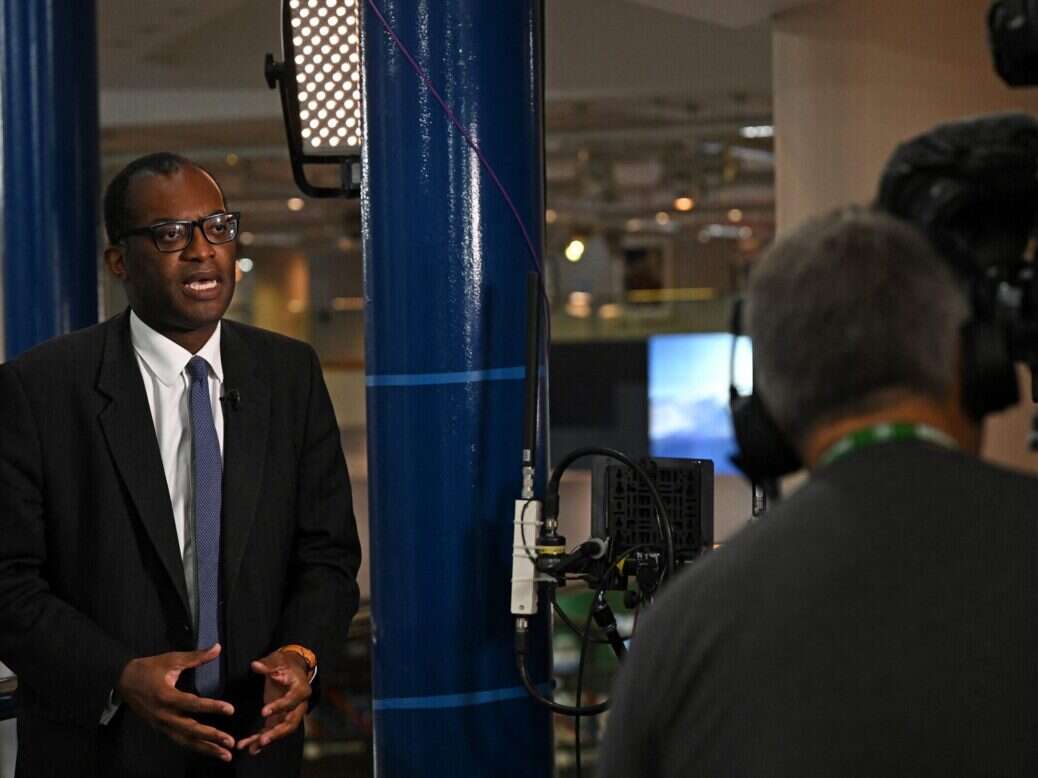
The cost of living crisis has been high on the news agenda this year, but the public has low financial and economic literacy.
The charity Economy and Rethinking Economics has pointed to a representative survey showing 60% of people cannot offer the correct definition of GDP when given five choices. And half could not choose the right definition for the government’s budget deficit from a multiple-choice question.
This means that when journalists use terms like inflation, GDP, or deficit, they are cutting around 50% of the public out of the discussion.
And research from the Economic Statistics Centre of Excellence shows the public think inflation and unemployment rates are much worse than they actually are, and they tend to distrust economic statistics.
This cynicism spills over to satisfaction with economic news. Only 2% of the public were very satisfied with the coverage of the economy they received during the pandemic, and 28% were fairly satisfied.
Even more striking, the same survey shows that only 23% think journalists had done a good job of explaining economic policies to the general public.
The economy and economic policy needs to be reported in a way that engages young people, women and a more diverse audience generally, as it mainly engages a male, elite and already financially literate audience.
To achieve this, economic newsrooms may need to diversify in terms of gender, class, and the sources they use for information.
Few women are employed as business and economic editors. Women are also paid less than men and, as Press Gazette has reported, one of the worst offenders has for years been The Economist.
To make the gender issue worse, there is a dearth of women economists available as sources of information. One in four economists working in UK academia are female, and only 15% of economics professors are women.
There is also a lack of lived experience about poverty and inequality. When it does appear in coverage, poverty and inequality are described as incidental, and causes and consequences are often missing from the coverage.
We now see the likes of Money Saving Expert founder Martin Lewis, author Jack Monroe and comedian Joe Lycett, who are discussing the economy and inequality in practical terms and reaching large audiences through social media and morning TV shows. But they are exceptions, and their reporting and commentary is more attuned to personal finances.
In other words, we need more Joes and Jacks, but we also need more mainstream journalists to cover complex stories about how the economic system works in a language the broader public understands.
There is, however, a lack of training and understanding about economics from journalists who cover this beat – an issue that has been ongoing for decades. The credit card analogy, claiming government debts are exactly like borrowing by individual households, has often been used by journalists although most economists believe it is misleading at best, and does not help public understanding of how the economy actually works.
It also contributes to the narrative that deficits are to be avoided at all costs – a narrative that has stuck with the public since the global financial crisis.
Some of these issues are easily remedied by journalists themselves, while others require an overhaul of the news industry and more support from policymakers and statutory education.
There are some practical ways this can be done now, and here are some of the recommendations made at the Middlesex University roundtable:
- Limit jargon and do not assume the audience will understand without explanation.
- Provide information in bitesize chunks.
- Use simple graphics to illustrate numbers and statistics.
- Explain what economic policies mean for ordinary people.
- Include positive and constructive ways the public can respond to economic developments and challenges. This would reduce public cynicism.
- Employ and encourage more women to cover the economy and enable their progression.
- Proactively seek diverse viewpoints. The BBC’s 50:50 programme goes some way to do this for gender. Something similar is needed to build a fair and diverse economic debate.
- Ensure that editorial policies cover how the economy should be reported, in order to ensure a diverse set of viewpoints and not just “balance”.
- There is an impartiality review underway of the way the BBC reports on fiscal policy. We recommend this happens at all media outlets for all economic policy.
- Provide regular training for editors and journalists on how to cover the economy critically and with balance.
Journalists can also follow recommendations by the following two reports:
- Frameworks report recommend communicating in current tense, drawing on compassion and justice frames, discussing the economy as something that is designed – and therefore can be redesigned.
- The NUJ report on poverty suggests reporting that covers data and takes human-centred approach and systems approach together.
All of society have a stake in the direction of the economy, whether they realise it or not. It’s journalism’s job to inform them and include them in the discussion.
Sophie Knowles is a senior lecturer in journalism, and media department director for research, at Middlesex University London.
Picture: Paul Ellis/AFP via Getty Images
Email pged@pressgazette.co.uk to point out mistakes, provide story tips or send in a letter for publication on our "Letters Page" blog
